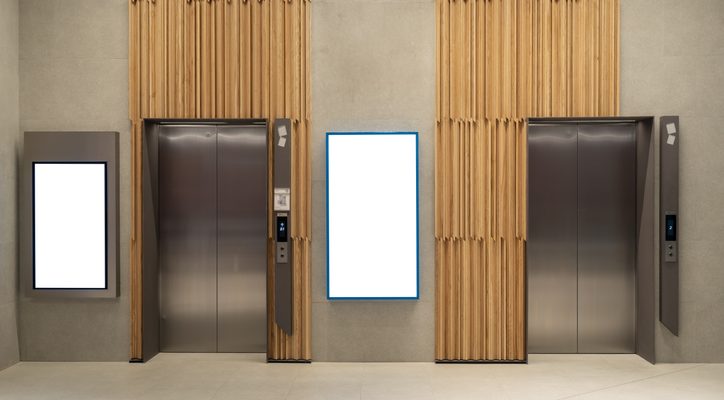Thinking About a Commercial Elevator Construction Project? Here’s What You Need to Know
Getting a new elevator isn’t as simple as picking one from a catalog and scheduling the installation. It’s a major part of your building’s infrastructure and takes careful planning. From considering code compliance to choosing the right elevator type, the decisions you make early on can keep your project on track or send it spiraling into delays. If you’re considering a commercial elevator construction project, our guide can help. Let’s dive in.
1. Understand the Building’s Needs
While it might sound simple, the first step in a commercial elevator construction project is understanding your building’s needs. For example, a high-end office building downtown will need a fast, sleek traction elevator. A hospital will require something completely different. It needs wider cars, antimicrobial surfaces, and advanced safety features. And at a hotel, you’ll need quiet doors, smooth rides, and luxe interiors.
2. Plan the Space Properly
Poor space planning is one of the most expensive mistakes you can make. You’ll need to ensure there’s enough room for the elevator hoistway, pit depth, and overhead clearance. Missing these details can lead to serious headaches down the road. Redesigns and construction delays can be costly and hinder your overall plans.
The more you know upfront, the smoother the project will go. Early collaboration with your elevator provider ensures all technical and architectural requirements are clearly understood. Overall, you’ll have fewer surprises during installation.
3. Consider Code Compliance
Every elevator must meet strict safety and accessibility standards, including ASME A17.1. If your elevator doesn’t comply from the start, you could face project delays, failed inspections, or even safety hazards. A trusted supplier will ensure your project stays in line with national and local codes.
4. Think Long-Term, Not Just Budget
It’s tempting to go for the lowest bid, but elevators are long-term investments. If they’re taken care of correctly, they can last for 15- 20 years. However, cutting corners in the beginning can lead to increased maintenance costs and breakdowns. High-quality components and premium materials might cost more upfront, but they pay off in reduced downtime and better user satisfaction.
5. Choose the Right Elevator Type
Not all elevators are created equally. The right choice depends on your building’s height, usage, and budget.
Traction elevators are best for mid- to high-rise buildings. They offer fast, smooth rides and can come in machine-room-less versions for space savings.
Hydraulic elevators are ideal for low-rise buildings. They’re generally more cost-effective and easier to maintain, especially in facilities with fewer vertical travel needs.
6. Expect a Realistic Timeline
If your building is ready and all trades are in sync, elevator installation typically takes about 15-25 weeks for traction elevators. Hydraulic elevators will usually take 6-8 weeks. Both depend on multiple factors and the scope of work.
Custom designs, high-rise projects, or boutique finishes may extend that timeline. That’s why early engagement with your elevator contractor is so important. It helps you set expectations and keep your project moving forward.
7. Avoid Installation Headaches with Good Coordination
Common delays during elevator installs include incomplete hoistways, missing power or HVAC connections, and late material shipments. To prevent these delays, communication between the general contractor, elevator installer, and all other trades must be rock-solid.
8. Work with an Experienced Elevator Company
When you need commercial elevator construction services, you need to work with the best. At Southwest Elevator, we have decades of experience and can help you with any commercial elevator construction project. We are one of the largest independent providers of elevator repair, maintenance, modernization, and new construction services. Our company is composed of technicians certified by the International Union of Elevator Constructors (IUEC) who receive ongoing education throughout the year. When you partner with us, you know you’re getting quality service from a team that cares.
Contact Us Today
Want to learn more about what we can do for you? Reach out to our team for an initial consultation.

